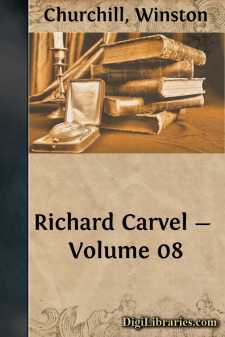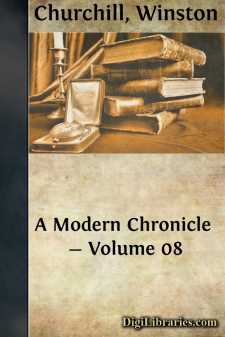Categories
- Antiques & Collectibles 13
- Architecture 36
- Art 48
- Bibles 22
- Biography & Autobiography 813
- Body, Mind & Spirit 142
- Business & Economics 28
- Children's Books 15
- Children's Fiction 12
- Computers 4
- Cooking 94
- Crafts & Hobbies 4
- Drama 346
- Education 46
- Family & Relationships 57
- Fiction 11828
- Games 19
- Gardening 17
- Health & Fitness 34
- History 1377
- House & Home 1
- Humor 147
- Juvenile Fiction 1873
- Juvenile Nonfiction 202
- Language Arts & Disciplines 88
- Law 16
- Literary Collections 686
- Literary Criticism 179
- Mathematics 13
- Medical 41
- Music 40
- Nature 179
- Non-Classifiable 1768
- Performing Arts 7
- Periodicals 1453
- Philosophy 64
- Photography 2
- Poetry 896
- Political Science 203
- Psychology 42
- Reference 154
- Religion 513
- Science 126
- Self-Help 84
- Social Science 81
- Sports & Recreation 34
- Study Aids 3
- Technology & Engineering 59
- Transportation 23
- Travel 463
- True Crime 29
A Far Country - Volume 2
Categories:
Description:
Excerpt
This was not my first visit to the state capital. Indeed, some of that recondite knowledge, in which I took a pride, had been gained on the occasions of my previous visits. Rising and dressing early, I beheld out of the car window the broad, shallow river glinting in the morning sunlight, the dome of the state house against the blue of the sky. Even at that early hour groups of the gentlemen who made our laws were scattered about the lobby of the Potts House, standing or seated within easy reach of the gaily coloured cuspidors that protected the marble floor: heavy-jawed workers from the cities mingled with moon-faced but astute countrymen who manipulated votes amongst farms and villages; fat or cadaverous, Irish, German or American, all bore in common a certain indefinable stamp. Having eaten my breakfast in a large dining-room that resounded with the clatter of dishes, I directed my steps to the apartment occupied from year to year by Colonel Paul Barney, generalissimo of the Railroad on the legislative battlefield,—a position that demanded a certain uniqueness of genius.
"How do you do, sir," he said, in a guarded but courteous tone as he opened the door. I entered to confront a group of three or four figures, silent and rather hostile, seated in a haze of tobacco smoke around a marble-topped table. On it reposed a Bible, attached to a chain.
"You probably don't remember me, Colonel," I said. "My name is Pared, and
I'm associated with the firm of Watling, Fowndes, and Ripon."
His air of marginality,—heightened by a grey moustache and goatee a la
Napoleon Third,—vanished instantly; he became hospitable, ingratiating.
"Why—why certainly, you were down heah with Mr. Fowndes two years ago." The Colonel spoke with a slight Southern accent. "To be sure, sir. I've had the honour of meeting your father. Mr. Norris, of North Haven, meet Mr. Paret—one of our rising lawyers…" I shook hands with them all and sat down. Opening his long coat, Colonel Varney revealed two rows of cigars, suggesting cartridges in a belt. These he proceeded to hand out as he talked. "I'm glad to see you here, Mr. Paret. You must stay awhile, and become acquainted with the men who—ahem—are shaping the destinies of a great state. It would give me pleasure to escort you about."
I thanked him. I had learned enough to realize how important are the amenities in politics and business. The Colonel did most of the conversing; he could not have filled with efficiency and ease the important post that was his had it not been for the endless fund of humorous anecdotes at his disposal. One by one the visitors left, each assuring me of his personal regard: the Colonel closed the door, softly, turning the key in the lock; there was a sly look in his black eyes as he took a chair in proximity to mine.
"Well, Mr. Paret," he asked softly, "what's up?"
Without further ado I handed him Mr. Gorse's letter, and another Mr. Watling had given me for him, which contained a copy of the bill. He read these, laid them on the table, glancing at me again, stroking his goatee the while. He chuckled.
"By gum!" he exclaimed. "I take off my hat to Theodore Watling, always did." He became contemplative. "It can be done, Mr. Paret, but it's going to take some careful driving, sir, some reaching out and flicking 'em when they r'ar and buck. Paul Varney's never been stumped yet. Just as soon as this is introduced we'll have Gates and Armstrong down here—they're the Ribblevale attorneys, aren't they? I thought so,—and the best legal talent they can hire. And they'll round up all the disgruntled fellows, you know,—that ain't friendly to the Railroad. We've got to do it quick, Mr. Paret. Gorse gave you a letter to the Governor, didn't he?"
"Yes," I said.
"Well, come along. I'll pass the word around among the boys, just to let 'em know what to expect." His eyes glittered again. "I've been following this Ribblevale business," he added, "and I understand Leonard Dickinson's all ready to reorganize that company, when the time comes. He ought to let me in for a little, on the ground floor."
I did not venture to make any promises for Mr....












